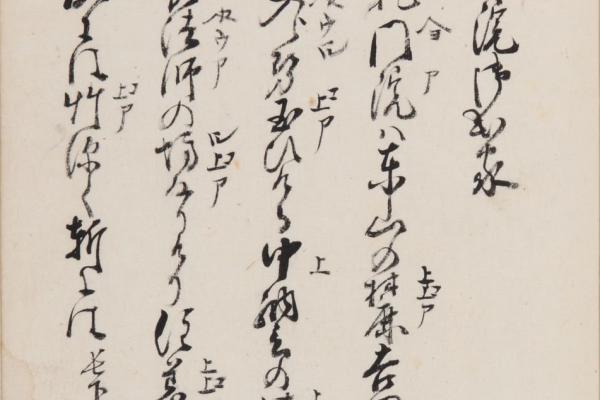
"Endings and the Tale of the Heike: Secret Pieces of the Heike Biwa Tradition"
Elizabeth Oyler
Department of East Asian Languages and Cultures
Director of the Center for East Asian and Pacific Studies
University of Illinois at Urbana-Champaign
Flyer: ![]() Elizabeth Oyler Flyer.pdf
Elizabeth Oyler Flyer.pdf
Abstract: The Tale of the Heike (平家物語), often called “Japan’s epic,” recounts one of the most divisive and consequential conflicts in Japan’s history: the Genpei War (源平合戦) that brought the first shogun to power and ushered in the age of the warriors. The war represents a number of important symbolic losses. The child-emperor Antoku drown in the final battle, and one of the three regalia marking divine sanction of the imperial line was also lost at sea. The Taira clan, whose ambition precipitated the war, was completely destroyed, and a new center for the warrior government was established far from the imperial capital at Heian-kyō (平安京). This presentation discusses how the variant texts of The Tale of the Heike frame the war, ranging from a Buddhist parable to a celebration of the establishment of warrior rule.
Bio:
Elizabeth Oyler is Associate Professor, Department of East Asian Languages and Cultures, and Director, Center for East Asian and Pacific Studies, University of Illinois at Urbana–Champaign. Her research focuses on narrative and performance traditions from medieval Japan, particularly those connected with Japan's first major civil conflict, the Genpei War (1180-1185). She is author of Swords, Oaths, and Prophetic Visions: Authoring Warrior Rule in Medieval Japan (2006) and co-editor of Like Clouds or Mists: Studies and Translations of Nō Plays of the Genpei War (2013). She is currently working on a study of landscape in the nō drama.
This event is sponsored in part by a U.S. Department of Education Title VI grant to The Ohio State University East Asian Studies Center and is free and open to the public.![]()
